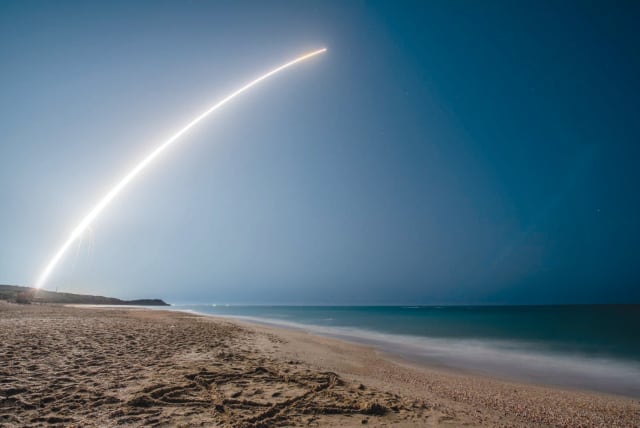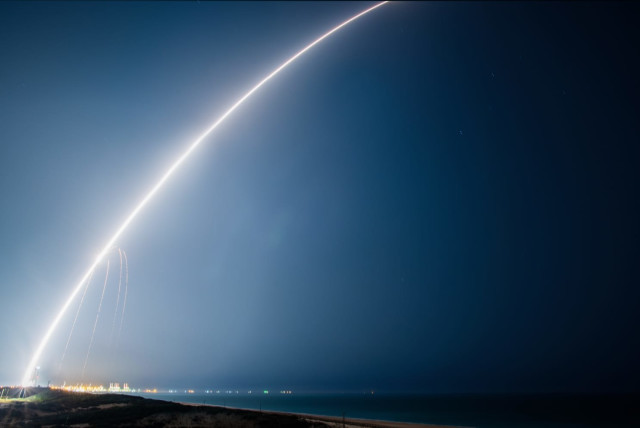IAI successfully launches satellite enabling all-weather, night coverage

The satellite is already performing its own initial checks to make sure it is functioning properly and simultaneously sending initial images.
Israel Aerospace Industries launched the DS-SAR satellite at 4 a.m. on Sunday, which successfully entered orbit and now enables 24-7 all-weather coverage.
Launched using a PSLV C56 launcher from India, the satellite carries a Synthetic Aperture Radar payload and is based on IAI’s success with the Ofek and TECSAR satellites.
There are customers in Singapore, DSTA, ST Engineering, and others who will receive data from the satellite.
India’s Space Research Organization said that ST Engineering will use it for multi-modal and higher responsiveness imagery, and geospatial services, for their commercial customers.
Furthermore, India said that the satellite weighed 360 kg. and entered into a Near-equatorial Orbit (NEO) at 5 degrees inclination and an altitude of 535 km.
PSLV is a four-stage rocket, with its first and third stages working on solid propulsion and its second and fourths working on liquid hypergolic fuel.
Several other satellites were also carried into space by the PSLV vehicle.
The IAI satellite is already performing its own initial checks to make sure it is functioning properly, and simultaneously sending images.
Ofek 13 satellite launch
In March, a new Israeli spy satellite, Ofek 13, was successfully launched into space.
While Ofek 13 is tailored for military use, the DS-SAR satellite is customized for commercial use, including by foreign customers.
The vast majority of the technology remained the same, though there are likely various changes to prevent classified Israeli capabilities from being compromised.
That launch was carried out using a Shavit 2 satellite launcher from an open space in the center of the country.
Ofek 13 is an advanced observation satellite, the Defense Ministry explained, adding that once it enters the orbit, “it will undergo a series of tests to ensure its propriety and performance levels.
“The launch was successful, according to the plan. The first indications from the satellite are also excellent. In the coming weeks, we will complete the technical tests and receive the first images,” the ministry added.
The development and production of the Ofek 13 satellite was led by the Defense Ministry through the IDF Space Directorate. Several other IDF units have been involved in the process, including Intelligence Division Unit 9900 and the Israel Air Force.
Head of the Defense Ministry Space Directorate Avi Berger explained in March that “Ofek 13 is a radar-based observation satellite with the most advanced capabilities of its kind in the world, all of which are the result of Israeli development.
“The launch was successful, according to the plan. The first indications from the satellite are also excellent,” he continued, providing updates from the launch itself.
“In the coming weeks, we will complete the technical tests and receive the first images, in preparation for the transfer of the satellite for operational use in the IDF.”
Jerusalem Post Store
`; document.getElementById("linkPremium").innerHTML = cont; var divWithLink = document.getElementById("premium-link"); if (divWithLink !== null && divWithLink !== 'undefined') { divWithLink.style.border = "solid 1px #cb0f3e"; divWithLink.style.textAlign = "center"; divWithLink.style.marginBottom = "15px"; divWithLink.style.marginTop = "15px"; divWithLink.style.width = "100%"; divWithLink.style.backgroundColor = "#122952"; divWithLink.style.color = "#ffffff"; divWithLink.style.lineHeight = "1.5"; } } (function (v, i) { });

